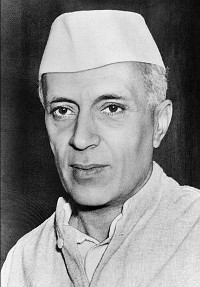
In 1937, after Jawaharlal Nehru had been elected president of the Indian National Congress for a second time, an author signing himself “Chanakya” published an article in Modern Review warning that power can corrupt an idealist:
The most effective pose is one in which there seems to be the least of posing, and Jawahar had learned well to act without the paint and powder of an actor … What is behind that mask of his? … what will to power? … He has the power in him to do great good for India or great injury … Men like Jawaharlal, with all their capacity for great and good work, are unsafe in a democracy. He calls himself a democrat and a socialist, and no doubt he does so in all earnestness, but every psychologist knows that the mind is ultimately slave to the heart and that logic can always be made to fit in with the desires and irrepressible urges of man. … Jawahar has all the makings of a dictator in him — vast popularity, a strong will, ability, hardness, an intolerance for others and a certain contempt for the weak and inefficient … In this revolutionary epoch, Caesarism is always at the door. Is it not possible that Jawahar might fancy himself as a Caesar? … He must be checked. We want no Caesars.
The author was later revealed to have been Nehru himself. “I wrote it for amusement, sent it to a woman friend who had it published,” he said. “Gandhi was even indignant, thinking some enemy was attacking me.”
Asked whether he thought the judgment correct, he said, “I suppose if a man can see such weaknesses inside himself, and discuss them, this is advance proof he will never succumb to them.”
